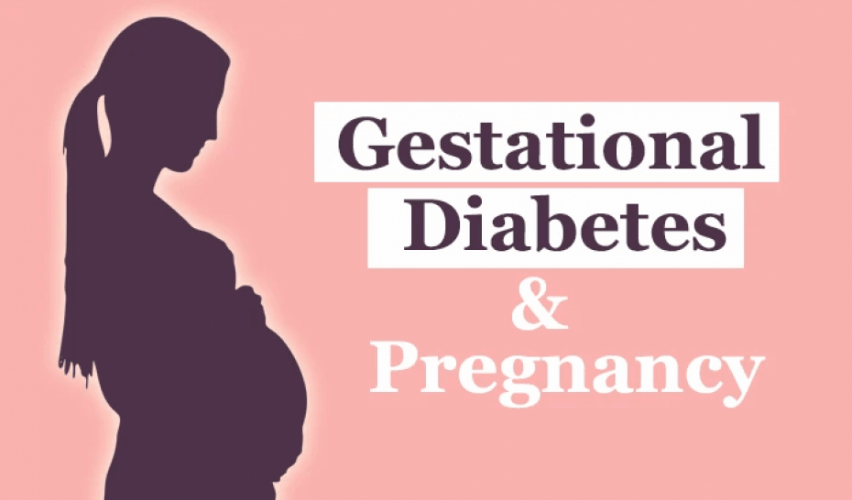All About Gestational diabetes - Pdf Slider

Gestational diabetes is a health problem that develops during the gestational period {pregnancy} and like any other type, this problem negatively affects the functioning of Insulin in the body, therefore it affects the way your body cells use Sugar. It occurs when the glucose levels in the blood are significantly elevated above normal, it often does not cause any symptoms at all, and the problem can affect both the growing fetus and the mother. Just like any other type of diabetes, this form of health complication can be controlled by eating healthy and getting proper treatment. The good news about this health issue is that Blood sugar often returns to normal after delivery.
Gestational diabetes: causes and risks
If you suffer from this health concern, you are at risk of developing type 2 diabetes in the future. You are considered to have a high risk of developing it if you are overweight {your body max index BMI is higher than 30}.
Some medical doctors will want to screen you early especially if you have some other risk factors such as; you previously gave birth to an overweight baby { 8 or 9 pounds and above}, you previously had an unexplainable stillbirth, you had a baby with some birth defects, you have high blood pressure, and you are 35 years of age or above. Medical practitioners normally conduct gestational diabetes tests within the first 24 to 28 weeks of pregnancy. Some researchers have also discovered some relationships between diabetic problems and excessive weight gain during pregnancy.
Why do women get diabetes during pregnancy?
Many women develop diabetes without any of the known risk factors, and some women may also be considered to be at low risk of developing the complication, these are women Younger than 25, have a healthy weight, and do not belong to the racial groups of people with a low prevalence of diabetes history. You may also have low risks of developing Gestational diabetes if none of your close relatives have the disease, and you do not have any history of stillbirth or any other birth complications.
High levels of blood sugar
Your body naturally digests the food you consume to produce sugar and some other biochemical components, and Insulin is secreted from the Pancreas in your stomach and this insulin helps transport glucose from your bloodstream into other cells of the body where it can be used for energy. During pregnancy stages, the Placenta which connects the growing fetus to the blood supply will produce several other hormones, and these hormones can disrupt the normal functioning of Insulin and this action can cause high levels of blood sugar, especially after meals. As the baby continues to grow, the Placenta will continue to produce more hormones that continue to block the normal functions of insulin and this situation may provoke some effects that can expose the baby to some health risks.
Management of Gestational diabetes
Screening yourself for the risks of developing this kind of diabetes is the first step you must take in preventing or managing the disorder more effectively. Diagnostic tests must be conducted on your first antenatal visit to the clinic, in most cases, a blood glucose test is conducted to detect your level of tolerance to Glucose in the blood, since it has been established that a sharp increase in blood glucose level is the main cause of Pregnancy-related diabetes. The diagnostic screening will help detect any inappropriate levels of Glucose in the blood and will help the doctor advise the pregnant mother how well she can manage the situation to prevent any further complications to the growing fetus.
Though there are several conventional medications that can be taken to deal with Gestational diabetes, these include Insulin Injections that can help lower Blood sugar and reduce further complications associated with the problem, it is however much safer to manage the complications that may arise from pregnancy-related diabetes, these management steps include Delicious diabetic recipes and moderate physical activities.
Healthy diets for pregnant women
Healthy diabetes diets must contain lots of fresh fruits and vegetables, whole grains, and Omega 3 and 6 fatty acids. As a pregnant woman, you will need to avoid refined sugars, sweetened products, and saturated fats. As a pregnant woman, you need to avoid smoking and alcohol consumption, while some little exercise during pregnancy will stimulate blood glucose to move rapidly into the cells and get used up for energy. A brisk walk during the day for some 15 to 20 minutes, especially at the early stages of pregnancy can help slow down your risks of developing Gestational diabetes.

